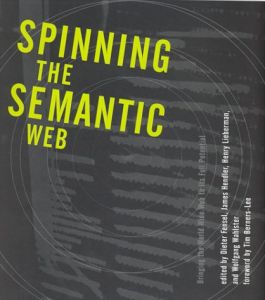Join getAbstract to access the summary!

Join getAbstract to access the summary!
Dieter Fensel, James Hendler, Henry Lieberman and Wolfgang Wahlster
Spinning the Semantic Web
Bringing the World Wide Web To Its Full Potential
MIT Press, 2003
What's inside?
The Web is a free-for-all. To make real sense of its massive information, you have to be able to find out what it means.
Recommendation
This book is relevant to all those who suspect "WWW" stands for "World Wide Wait." If you don’t understand the Internet’s shortcomings, just type "antidisestablishmentarianism" into the Google search engine and try to make sense of the 5,890 returns you get. Currently, there are three billion pages of information on the Internet, but within the next year that number will double. The question is how to manage the data while still increasing the functionality of the Web, continuing its transformation from a place where you "find something" to a place where you "do something." To accomplish those tasks, you have to go beyond "meta-tags" - those invisible headlines that tell search engines what any given page is really all about. This volume outlines the Semantic Web approach, which offers answers to those questions. A word of warning: this somewhat technical book will be of greatest interest to programmers, Web designers, specialists and motivated visionaries. getAbstract.com recommends it highly - if you fit into one of those categories.
Summary
About the Authors
Dieter Fensel is an associate professor of mathematics and computer science at the University of Amsterdam. Henry Lieberman is a research scientist at the MIT Media Laboratory. James Hendler is director of Semantic Web and agent technology at the University of Maryland Information and Network Dynamics Laboratory. Wolfgang Wahlster is director and CEO of the German Research Center for Artificial Intelligence, and a professor of Computer Science at the University of Saarbrucken.

















Comment on this summary